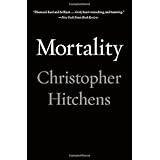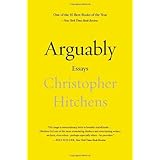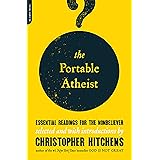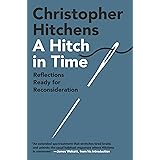
Enjoy fast, free delivery, exclusive deals, and award-winning movies & TV shows with Prime
Try Prime
and start saving today with fast, free delivery
Amazon Prime includes:
Fast, FREE Delivery is available to Prime members. To join, select "Try Amazon Prime and start saving today with Fast, FREE Delivery" below the Add to Cart button.
Amazon Prime members enjoy:- Cardmembers earn 5% Back at Amazon.com with a Prime Credit Card.
- Unlimited Free Two-Day Delivery
- Streaming of thousands of movies and TV shows with limited ads on Prime Video.
- A Kindle book to borrow for free each month - with no due dates
- Listen to over 2 million songs and hundreds of playlists
- Unlimited photo storage with anywhere access
Important: Your credit card will NOT be charged when you start your free trial or if you cancel during the trial period. If you're happy with Amazon Prime, do nothing. At the end of the free trial, your membership will automatically upgrade to a monthly membership.
Buy new:
$12.29$12.29
Ships from: Amazon.com Sold by: Amazon.com
Buy used: $9.79





Download the free Kindle app and start reading Kindle books instantly on your smartphone, tablet, or computer - no Kindle device required.
Read instantly on your browser with Kindle for Web.
Using your mobile phone camera - scan the code below and download the Kindle app.

 Audible sample Sample
Audible sample Sample 


Follow the author
OK
Letters to a Young Contrarian (Art of Mentoring (Paperback)) Paperback – April 13, 2005
Purchase options and add-ons
In Letters to a Young Contrarian, bestselling author and world-class provocateur Christopher Hitchens inspires the radicals, gadflies, mavericks, rebels, and angry young (wo)men of tomorrow. Exploring the entire range of "contrary positions"—from noble dissident to gratuitous nag—Hitchens introduces the next generation to the minds and the misfits who influenced him, invoking such mentors as Emile Zola, Rosa Parks, and George Orwell. As is his trademark, Hitchens pointedly pitches himself in contrast to stagnant attitudes across the ideological spectrum. No other writer has matched Hitchens's understanding of the importance of disagreement—to personal integrity, to informed discussion, to true progress, to democracy itself.
- Print length160 pages
- LanguageEnglish
- Publication dateApril 13, 2005
- Grade level11 and up
- Reading age13 years and up
- Dimensions5 x 0.4 x 8 inches
- ISBN-100465030335
- ISBN-13978-0465030330
- Lexile measure1230L
Books with Buzz
Discover the latest buzz-worthy books, from mysteries and romance to humor and nonfiction. Explore more
Frequently bought together

Similar items that may ship from close to you
From the Publisher
|
|
|
|
|---|---|---|
|
|
|
|
Editorial Reviews
Review
"[Hitchens] is, first and last, a writer, an always exciting, often exacting, furious polemicist."―Boston Globe
"Letters shows Hitchens's best....[H]e makes entertaining mincemeat of self-satisfied politicians and shreds received ideas and media-spun consensus with a fearlessness that is invaluable in our mealymouthed punditocracy."―Village Voice
"Delicious....[Letters to a Young Contrarian] showcases Hitchens at his most savage and wise."―Progressive
"Part revolutionist, part court jester, he is possessed of a wickedly effective prose style and sense of moral purpose....True democracy would not exist without Hitchens and his ilk. May this book breed many more contrarians, young and old alike."―Timeout New York
About the Author
Product details
- Publisher : Basic Books (April 13, 2005)
- Language : English
- Paperback : 160 pages
- ISBN-10 : 0465030335
- ISBN-13 : 978-0465030330
- Reading age : 13 years and up
- Lexile measure : 1230L
- Grade level : 11 and up
- Item Weight : 2.31 pounds
- Dimensions : 5 x 0.4 x 8 inches
- Best Sellers Rank: #120,063 in Books (See Top 100 in Books)
- #55 in Atheism (Books)
- #145 in Democracy (Books)
- #343 in Political Commentary & Opinion
- Customer Reviews:
About the author

Christopher Hitchens (1949-2011) was the author of Letters to a Young Contrarian, and the bestseller No One Left to Lie To: The Values of the Worst Family. A regular contributor to Vanity Fair, The Atlantic Monthly and Slate, Hitchens also wrote for The Weekly Standard, The National Review, and The Independent, and appeared on The Daily Show, Charlie Rose, The Chris Matthew's Show, Real Time with Bill Maher, and C-Span's Washington Journal. He was named one of the world's "Top 100 Public Intellectuals" by Foreign Policy and Britain's Prospect.
Customer reviews
Customer Reviews, including Product Star Ratings help customers to learn more about the product and decide whether it is the right product for them.
To calculate the overall star rating and percentage breakdown by star, we don’t use a simple average. Instead, our system considers things like how recent a review is and if the reviewer bought the item on Amazon. It also analyzed reviews to verify trustworthiness.
Learn more how customers reviews work on Amazon-
Top reviews
Top reviews from the United States
There was a problem filtering reviews right now. Please try again later.
In this book of we find Christopher Hitchens engaged in a series of letters, written in earnest prose about the necessity of nonconformity for the survival of the modern liberal society.
Each small chapter, acts as an addressed letter in an ongoing correspondence with an unnamed addressee, referred to as " X ".
The overall theme of this work is concerning the function of the "Radical" and the places in the world where political situations had called for the Radical to dissent from the collective instinct. To dissent is to remain independently minded and askew from where the collective instinct has become the insecure mob - blindly following an "infallible" leader.
Hitchens doesn't hesitate to disclaim that the sources of irrationality and prejudice that stem from the mob populist consensus, are petty, private, archaic and primeval urges ;
"There is no limit to human anti-intellectualism so there must be no limit to reason."
It must be noted somewhere in this review that Hitchens is an exceptional prose stylist and his letters are wonderfully engaging and nuanced from the outset, often striking a self-reflective note. Included his letters are personal lessons that were learned firsthand while answering the call to investigate a Moral crisis. These investigations certainly grounds his commentary when citing literary scholarship, ranging over vast landscapes of the humanities and politics.
The first of Hitchens letters' begins clarifying the role of the radical or dissident, with examples of individual struggles against the collective instinct.
For Hitchens, the dissident is to be earned rather than claimed. . .
i.e The one's who have earned to call themselves "dissident" were those who took a risk in going against "surreptitious conscription's" that are employed in order to exploit and control the masses. The radical dissident also maintains a commitment to explore the unconventional and contrary positions, which is shown to be a honorable commitment to personal integrity . This commitment is a "social contract" that is a prerequisite to democracy and to civilization, with Justice ideally taking precedence over corruption.
Throughout the letters Hitchens repeatedly informs the reader on how the dissenter deals with the struggle of societal conflict, where tribal solidarity and the intolerance that arises from it can be led to militarism, where the Law suddenly serves the interests of the State first - and the People second. To be ever more clear and concise, Hitchens later provides important aspects of being a radical in contrast to merely being a "reactionary" among other pitfalls that the radical must avoid. For clarity and to avoid confusion, the radical dissident or contrarian does not rest solely in any particular disagreement, but uses dissent as a way of being perpetually at odds with the mainstream.
Hitchens gives applicable advice about being eternally vigilant and persistent in the face of unrelenting opposition through his journalistic experience, coupled with his remarkable use of numerous literary examples.
One cannot easily dismiss Hitchens as employing merely idealistic anecdotes which can't be used in "real" complex situations, when one purveys the numerous examples that grounds his arguments -
especially when the arguments are recorded from people who experienced confrontations with the intolerant mobs and/or the State which sought to suffocate and extinguish the dissident voice of the disenfranchised minority. . . such as the abolitionist John Brown, Emile Zola, Martin Luther King and Nelson Mandella to only name a few who regarded a compromise as a disgrace.
Ever more helpful is Hitchens when further describing the mindset one needs in order to dissent when necessary.
These descriptions further outline good tactics to use when in opposition, as when dissecting common arguments employed against those who oppose status quo's and further capitalizing by providing great rejoinders to those arguments.
Hitchens highlights the use of irony to expose or to question - using methods of sarcasm while enduring an "As if" duration while criticizing the system - always a dissident from the status quo.
This helps the dissident when engaging a non-violent political rebellion. Patiently embrace the struggle and make it your own.
But the use of irony or sarcasm in a critical fashion something, Hitchens would characterize as "behaving literally and acting ironically". "Behaving literally and acting ironically" is opposed to “a world of timidity” where everyone is trying to be politically correct and where identities are constructed around one’s “offendedness” to any sort of direct criticism.
There are other concerns mentioned that are directed against the "concilliary" minded, who argue for the suppression of known facts by the following rationale that sometimes the truth cant or shouldn't be told at this time. For Hitchens this notion of the "concilliary minded" also promotes censorship of criticism, such as when the satirical questions the obvious.
Although Hitchens jokes such a radical can be boring, he still takes time to suggest for the employment of different types of "wit" humor that has been employed in radical statements or criticisms in order to soften the cushion.
All throughout these letters are references of the courageous determination of individual people and their spontaneous resistance to episodes of bullying or bigotry, or a challenging "pedagogical stupidity", somehow being effective enough to dishearten those whose courage was mob-derived.
Hitchens providing his own observations and literary examples of the fact, that noble or moral reactions be shown as being innate - stressing that these reactions will continue to occur and without them being dependent for their occurrence upon the transmission of "morality tales". Indeed there can be shown where moral reactions take place spontaneously.
The narration always includes many examples of different times and places where the role of the dissident or one who speaks out in the cause of morality, is not confined to the saintly or celebrity and is usually more genuine. These examples seem to be a valid argument against the claim that religious belief is necessary condition for moral actions - soon afterwards, Hitchens uses many examples to demonstrate how the argument of morality being dependent upon a mythic or religious transmission is a misapprehension of what really takes place.
This comes to the letter that dissents from institutions, particularly religious institutions that actually ask that people to "check your intellect at the door" and listen to the "wise person" or "books of wisdom", further aspiring mental annihilation. This subtle imposed ignorance keeps the masses in a haze, but sufficiently free to do the bidding of its leaders, however harmful they may be. This quieting of the faculties of reason easily endangers people, making them more susceptible to being deluded by the current religious conformism, centrism or large consensus. One ever common example of the mental dangers of Non-judgement, are people becoming morally apathetic or being "non-critical" on positions which has often led to moral transgressions of those who decide to remain neutral in times of crisis - such as the Catholic German Priest's being concilliary or somewhat accommodating to Hitler and his political purposes.
It is in this context where Hitchens of his own term he likens, "anti-theism" as part of a ongoing criticism of Religion and its harmful applications. One notable criticism regarding Religion and its harmful applications, is of how the Christian claim of "vicarious redemption" is in fact, repulsive - with any sort of actual application rendered absurd ;
For example Hitchens writes, "I would not throw my numberless sins onto a scapegoat and expect them to pass from me" It follows that you should not assume anothers actual crimes as if they were your own;
For one thing you really didn't commit them and might have died than instead of committing them - this impossible action of vicarious redemption robs people of individual responsibility.
In short, this claim is not intellectually honest and is therefore adverse to grounded reasoning.
This is certainly a thought provoking book that is enjoyable to read and useful to employ. Regardless of what one thinks of the arguments and positions put forth in these letters, Hitchens always puts forth sound rationale for why he thinks the way he does - ever provoking the rational salience of a fellow contrarian.
The book is written as a series of letters which are timely and timeless.
I bought this book as a gift for a young writer and journalist. I read it before giving it as a gift. I am very pleased with it as a gift and hope that the advice falls on fertile soil. I am also very pleased with the book as advice for my own personal causes.
These letters continue to be a priceless source of insight and wisdom as the student continues to evolve as an activist. We can all see ourselves in these wonderful words and we can witness what we aspire to be.
These letters fill the reader with hope. There is hope that society can evolve to a rational enlightenment. Hope is alive and we are not doomed to repeat all the follies of history.
What impressed me so much was the incredible precision and care in each of the letters. The commitment to explore the unconventional and contrary positions is a commitment to personal integrity. This commitment is a social contract that is prerequisite to democracy and to civilization.
The author's choice of examples and counter examples clearly illustrate his intention to inspire the next generation of social thinkers.
I highly recommend this book to every person who wants to become an agent of change. It will probably be more useful to aspiring journalists, scientists, mathematicians and writers. People who simply enjoy the wonder of reasoned inquiry will delight in the book also.
The advice can hardly be paraphrased with any justice to the subject in a short review. For the most part, the author be gives advice about being eternally vigilant and persistent in the face of unrelenting opposition. There is no limit to human anti-intellectualism so there must be no limit to reason. Patiently embrace the struggle and make it your own. Understand that the sources of irrationality and prejudice are petty, private, archaic and primeval urges.
All of these things he discusses with incredible wisdom and lucidity. The author centers, assures and illuminates the student.
What a delight this book turned out to be. Buy a copy of this book for every young person you care about. They can read it again and again to gain insight and create a purposeful life. Some young people will cynically dismiss the relevance of the message, but no one who reads it can miss the message. Life on autopilot, accepting standards and norms without reason, is to life without human purpose.
Even the most cynical alive person can give pause to enjoy this wonderful collection of sweepingly thought provoking letters.
The author says to "Do justice, and let the skies fall." This leads to a calling of confrontation, argument, and troublemaking. The author advocates a life of being perpetually at odds with the mainstream. "Humanity is very much in debt to such people."
I highly recommend this book.
"A few years ago, I decided in my own mind that the then-president [Bill Clinton] was even more of a crook and a liar than his most dogmatic ideological opponents had claimed."
"Some people can't bear solitude, let alone the idea that the heavens are empty and that we do not even succeed in troubling their deafness with our bootless cries [...] the concept of loneliness and exile and self-sufficiency continually bucks me up."
The two examples above show why he was truly a contrarian: Hitchens went after the cultural elite (Left) as well as the religious (Right). Thus, everyone listened to him, and everyone disagreed with him on something. I miss the guy's writing terribly, and love to go back to this book and read his eloquence and humor. These days, we all have our own little bubbles in which we reside, be that the ivory tower or talk radio, but Hitchens (1949-2011) was everywhere, ready to debate. Always ready.
In "Letters to a Young Contrarian," the author forms an intimate bond with the reader, discussing life in the most entertaining and substantive way. What a charming, intelligent writer. I recommend this book for anyone, regardless of their age.
Top reviews from other countries
Eigentlich lese ich nicht sehr gerne english, aber der Schreibstil war so direkt und nicht-hochtrabent und lebendig, dass das kein Problem war. Im wesentlichen reflektiert der Autor in den verschiedenen Kapiteln "nur". Dabei geht es im Wesentlichen immer wieder um die Beziehung zwischen Individuum und Gesellschaft. Aber auch Anderes wird gestriffen.
Ich, der ich selbst eine leicht philosophische Ader habe, konnte mit dem Buch viel anfangen. Ich habe mir viel angestrichen. Der Mensch, der mir das Buch auslieh bekam es nat. zurück und ich kaufte mir eine eigene Ausgabe, die einwandfrei und schnell ankam. Eines meiner Lieblingszitate aus dem Buch ist folgendes: "The essence of the independent mind lies not in what he thinks, but in how he thinks." .Oder: "The truth cannot lie, but if it could it would lie somewhere in between". Doch, ich persönlich mochte das Buch sehr.
It has been said that many stars have died in their advanced years long after it would have been tragic. For Hitchens, the immediacy of his prose style make it easy for him to live on.















